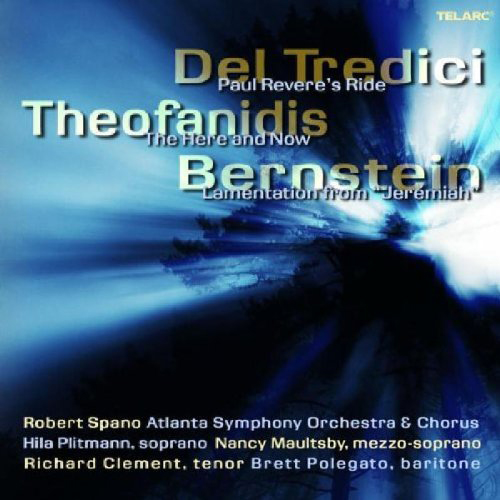By Porter Anderson
CNN
March 31, 2008

ATLANTA, Georgia (CNN) -- "The Here and Now" might well be subtitled "Redeeming Rumi." As if to save us from the new-age squish of much contemporary rediscovery of the 13th-century Persian poet's work, Christopher Theofanidis' 33-minute sonic salon is an exhilarating setting bound for a Carnegie Hall debut April 5.
This is another of a series of Robert Spano's commissions for the Atlanta Symphony Orchestra he leads.
Important new work of living American composers is Spano's passion, and he not only gets it written and staged, he also records it: This work is available now in a Grammy-nominated CD released by the adventurous Telarc label.
Performances this week in Atlanta's Delta Classical Concert Series, ahead of the Carnegie premiere, prove why the ASO under Spano's direction is the crown jewel in Atlanta's performing-arts community, and a standout in American symphony circles.
To get the most out of this concert's special merger of forceful music and intriguing lyrics translated by Coleman Barks, here's a three-part suggestion.
"We have opened you!" As they slam their final line into their audience, the choir fairly beams with the triumph of the composer's vision. They sound ecstatic. And although those italics are Theofanidis' ("thee-oh-fah-NEE-deece"), you may feel they're completely justified, as an ancient intelligence wraps its muscular arms around you in some of the most seductive choral and orchestral music of recent years.
What fascinates us today about Rumi, of course, is his nourishing connections between faith and romance, sometimes faith and eroticism. Nowhere is this more compelling than in the finale of this 13-section work. Hours after you hear it, you'll find it impossible to shake from your head its stamping three-beat dervish, whirling joyously in your mind.
Particularly clean solo vocals mark these performances, in part a product of Spano's developmental process with his ASCAP "Atlanta school" of contemporary composers. The Atlanta premiere of this work was made three years ago, and the preparation of the Telarc CD provided more work on the piece.
All that pays off now in the studied restraint of baritone Nathan Gunn's several "narratives" (including one clever ode to "two insomnias"). He might even allow himself more energy in his introduction to that final segment when he shouts from the stage, "The laughter was his freedom and his gift to the eternal!"
And listen carefully for the sinewy, hypnotic sway of soprano Hila Plitmann and Richard Clement's duet "The urgency of love." Floating on a rose-redolent bed of percussive effects, Mesopotamia lives in this arching, heady smackdown of anyone who dares question its drama: "Don't laugh at this. This loving is also part of infinite love, without which the world does not evolve."
And without this sort of nurturing, top-class commission work, our contemporary serious music scene can't evolve, either. Under Spano's guidance, Theofanidis' choral textures are vaulting up into the luminous reach of Steve Reich's "The Desert Music" and John Adams' "Harmonium." And like Adams in particular, this is a composer who never loses his wonder for a text.
In fact, Theofanidis takes Rumi's radiant words so artfully to heart that you'll feel he knows just what his chorus is singing to you when they urge, "Let everyone climb on their roofs and sing their notes! Sing loud!"
